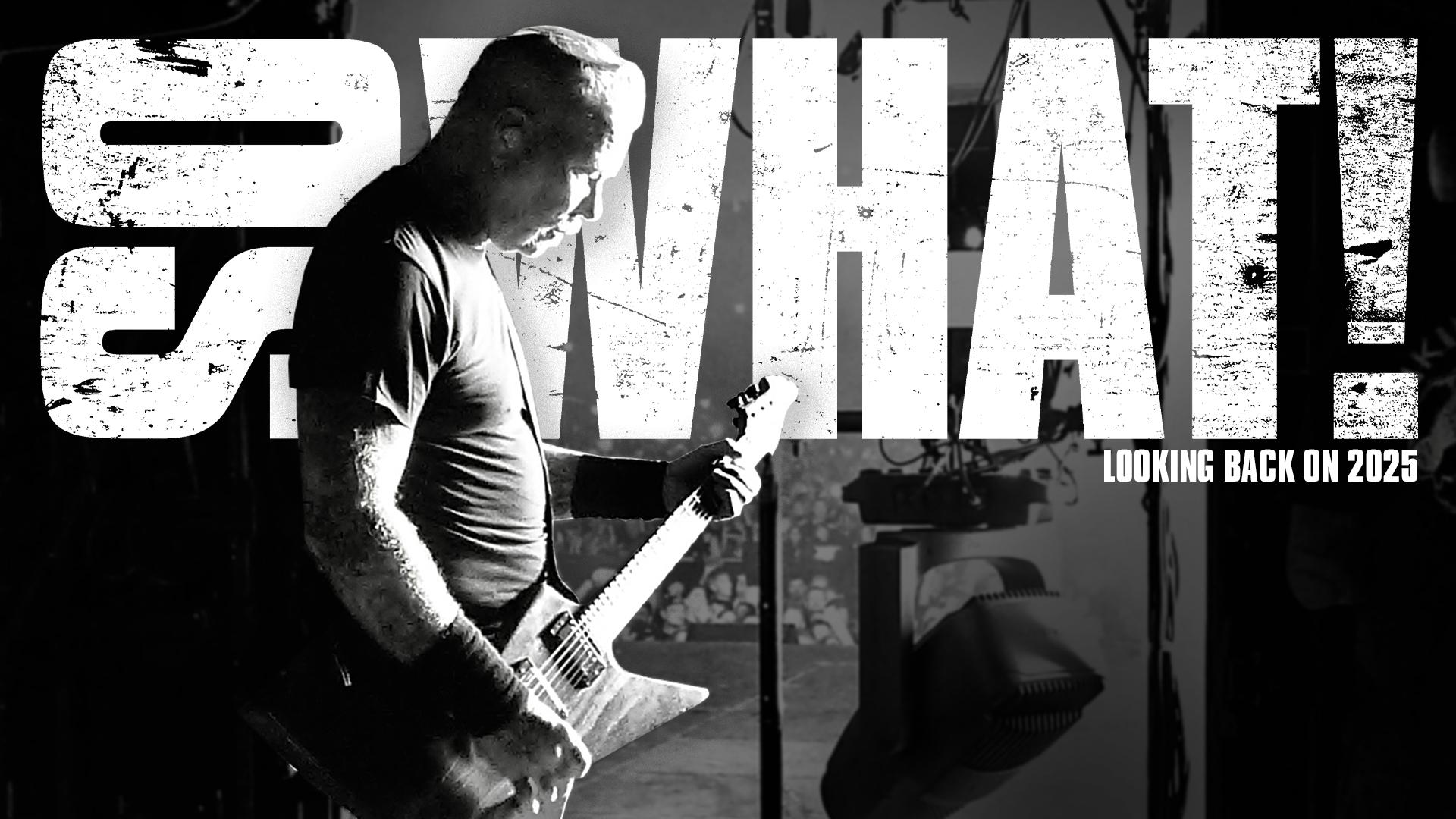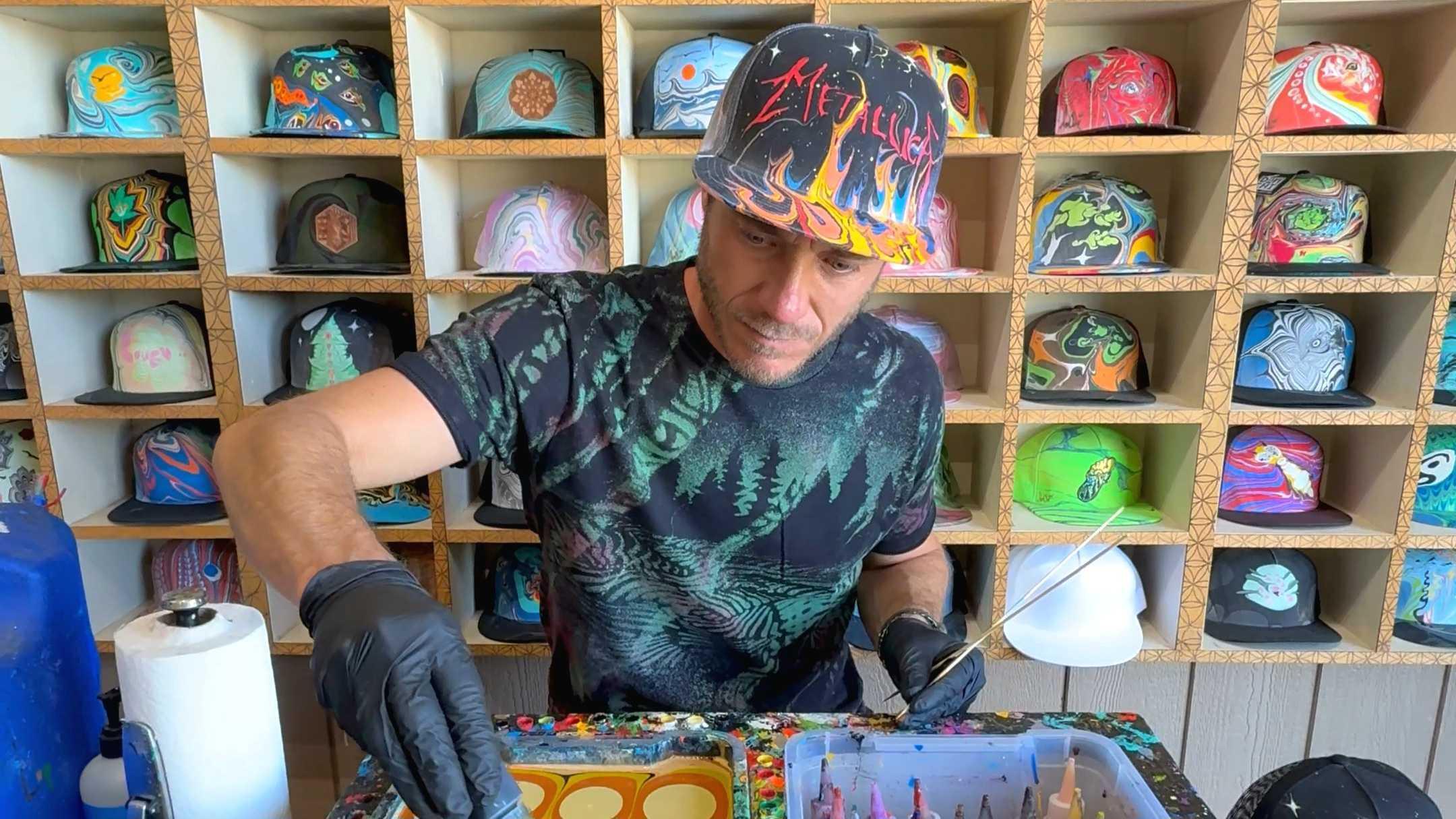
Looking Back on 2025
Some words and photos to look back on the year that was from So What! Editor Steffan Chirazi.
Sep 28, 2021
Having started playing piano at the age of three, Igor Levit has spent the last 31 years becoming one of the masters of his trade. Steffan Chirazi finds out that while he deftly interpreted “Nothing Else Matters,” plenty actually does matter to him personally.
The line crackles with static as I speak with a man who has mastered piano in 34 years. A man who regularly delivers world-renowned interpretations of works by Beethoven and Bach, among several classical maestros. A man who is a professor at Musikhochschule in Hanover, Germany. And a man who streamed 52 – that is fifty-two – performances during the pandemic from his living room in Berlin Mitte via Twitter (and by proxy the app Periscope) entitled Hauskonzerte (house concert).
Welcome to Igor Levit, a talent quite obviously driven by special sauce. Born in the Russian city of Gorky, now Nizhny Novgorod, Levit and his family moved to Germany in the winter of 1995 on humanitarian grounds as part of a contingent of Jewish refugees. Settling in Hanover, Levit absorbed all aspects of the piano while at the same time dropping out of high school. He has become not just an award-winning and highly renowned pianist but a musician who regularly engages audiences from all areas of music. Levit is also a keen supporter of social and political causes and is also keenly engaged with all sorts of modern pop culture matters. In short, Levit is a wonderfully busy, complex, and perpetually-motioned man, who I will soon learn harbors a giant hesher in his soul too.
Before we get to our chat, there is a quote I came across in The New Yorker which leaps out as particularly instructive of where Levit’s psyche sits.
In a text to the author, Alex Ross, Levit said, “Maybe for the first time do I understand what it means to speak of music as something life-keeping. It really keeps me alive…I don’t care if it’s wrong or right, whatever B.S. that means, just as long as I can actually press down the black and white keys. I’ve never, never been freer than now. Never. And I am in tears half the day. Very, very dark. And yet. The existential must of music-making really becomes bigger and bigger by the minute.”
Lonely is the long-distance pianist?
Steffan Chirazi: You became a pianist at a very young age, and I wondered if you remember any early sounds that instigated that interest?
Igor Levit: Honestly, I cannot tell you really because it’s asking if you really consciously remembered your actions at the age of three. And you probably have to say no. I can say that music was everywhere around me where I grew up. My mum is a pianist herself and was teaching, and you know, there were some noises coming out of some, some (weird looking) instrument. And so when I’m asked how I came to the piano, my response would be, “Crawling!” I just crawled to the piano from my little bench to touch the first key. And apparently, it is something I liked because I never really stopped since then. There were times that I wanted to stop, but in the end, I never did. There’s something about the tone that just dragged me into that world and never let me go. Luckily there is no such thing as classical or non-classical. So a three-year-old hears a song. Do they like it? And I liked it. And I still like it. And it doesn’t matter what genre it comes from.
SC: And I have to ask, as you’re making your way through academia and all of these places that you went at such a young age, was it always focused on classical piano, classical music, classical arrangements, and classical compositions?
IL: Honestly Yes and no. I was really influenced both by the core classical repertoire but really also a big deal by American hip hop. A very big deal by American folk music. A very big deal by rock and roll. Another thing that came into my life was Pete Seeger. Then Woodie Guthrie came into my life, then Robert Johnson and Muddy Waters. And at some point, Metallica came into my life. I mean, I’m not making it up! And Aerosmith. It’s a colorful bouquet of all kinds of musical genres I was not just sort of into, but which had really inspired me a great deal.
SC: Good stuff indeed. Now, moving to The Black Album…it came out when you were quite young, so congratulations on that! What exposure, and when, have you had with this album? I’m guessing plenty before this opportunity floated across your vista.
IL: Oh, it was a big deal, yeah. What the readers must know is that – although I started playing the piano at the age of three – secretly the one instrument I always wanted to play, the one instrument I would say is in a way my most beloved instrument, obviously next to the piano not instead of the piano, is the guitar. I’ve always wanted to play the guitar. I was crazy about the guitar and also kind of crazy about the banjo. But with the guitar, I was really drawn into it big time. When I was a student, and I discovered old Robert Johnson records, it drove me crazy. I would just listen to Robert Johnson.
One of the sad parts of my life [is] that I wasn’t allowed to play the guitar because people around me would tell me, “Well, it’s not that healthy for the fingertips to play because you can injure them.” That wouldn’t be good for the piano play. And so [it is one of] those instruments I love beyond belief, and I cannot play it. I own one extraordinary Martin guitar, but it’s just that I can’t sit with the guitar and play for hours and hours. But [to casually play the Martin – ED] it’s just such a fulfilling thing for me to do. And so there’s the guitar, discovering Robert Johnson, Muddy Waters, Jimi Hendrix became like a hero to me. Then I came into touch with early Rolling Stones records, and so on, and so on. Obviously, at some point, I came in touch with the electronic guitar. This was when Metallica came into my life, to be honest, and the first song I really was crazy about was “Enter Sandman.”
Quite quickly after “Enter Sandman,” I discovered Master of Puppets, which I was totally crazy about. And it was a friend – I believe I was in my first year of college – who introduced me to “Nothing Else Matters.” So it was quite late, in a way, when I discovered the song. And ever since, I thought that it was in the annals of the great, great, great songs in human history right up with, you know, Sinatra’s “Only the Lonely,” for example. There were always a couple of bands I wanted to hear in real-time [live], and Metallica was right up there. I never had the chance to, but The Black Album became an integral part of my life.
SC: That’s amazing. So when this invitation came, it was a “no brainer,” as we would call it. Tell us what you looked to pull out of the song.
IL: Yes, it was a no-brainer, and I was just beyond myself. The moment I got the invitation to take part in this project was the moment where my gut feeling told me I had to call Fred Hersch. Now Fred is not only a friend, but I believe one of the very, very greatest pianists, musicians of our time. And I called Fred because I wanted to bring something, let’s say rhapsodic, out of that song. So I called Fred to transcribe “Nothing Else Matters,” and he did. And he really made an incredible thing out of it: rhapsodic plus fairy-tale-like storytelling manner. And I think it’s kind of closer to what I always feel when I hear the song in a very timeless and warm, heartfelt way.
SC: And what about dealing with the vocal side of the song?
IL: Well, look. Ever since, I’ve been playing an instrument which is kind of non-verbal, right? So there are no lyrics to 100% of all things that I play. So this is something I live with day and night. This is what it became; of course, I think about the lyrics. I also know that there are people who are listening to it as poetry, not for the lyrics. So yes, I think about that a lot. A lot. But I can’t sing them, so I have to look at them as songs without words. That’s the fate of my…
SC: You find a way to infuse the flavor of those lyrics in the music?
IL: Yeah. Let’s say the soul of it.
SC: Were any elements of taking this song on intimidating?
IL: No. And I don’t think any music should be intimidating to either the listener or the musician. Music is there to be played, to be listened to, to be loved, and to be felt. Not to intimidate anyone. So I don’t believe in that concept.
SC: Great. So, this band has interacted with symphonies, symphonic arrangements, transcribers, and conductors with S&M and S&M2. I have to ask, did you listen to any of that work before you took on this song?
IL: Well, of course, I know the collaboration, the famous one with the San Francisco Symphony Orchestra. I know that one [from] when I was a student. But for this particular song, I did not listen to any of the old albums, so no, I was totally free from them.
SC: My last question is, if there was one other song of Metallica’s that you would love to interpret, what would it be?
IL: “Enter Sandman.” That’s the one I would give a lot for. That’s the song which I think is like a great masterpiece. I don’t know what I would give to call Kirk Hammett and to say, “Hey, can I just hear you play that?” If I could take an hour, talk about it, and [have him demonstrate for] me, that would be one of the great, great, great achievements.
WATCH THE MUSIC VIDEO FOR "NOTHING ELSE MATTERS" BY IGOR LEVIT

Some words and photos to look back on the year that was from So What! Editor Steffan Chirazi.

Dominic Padua (aka Dom Chi) does many things very well, including the art of marbling. Steffan Chirazi visits his Sebastopol, CA, studio to learn more.

What you are diving into here is my personal journal with regards to the Back to the Beginning extravaganza. Much of it was written off-the-cuff, and the sheer magnitude of the event means that even now there are still pieces of “thought” swirling in the ether and making brain fall by the hour. These recollections, emotions, and observations are shared reflectively over three separate entries after the event and are split between an initial “post-event download” and then a more chronological reflection on our time in Birmingham…